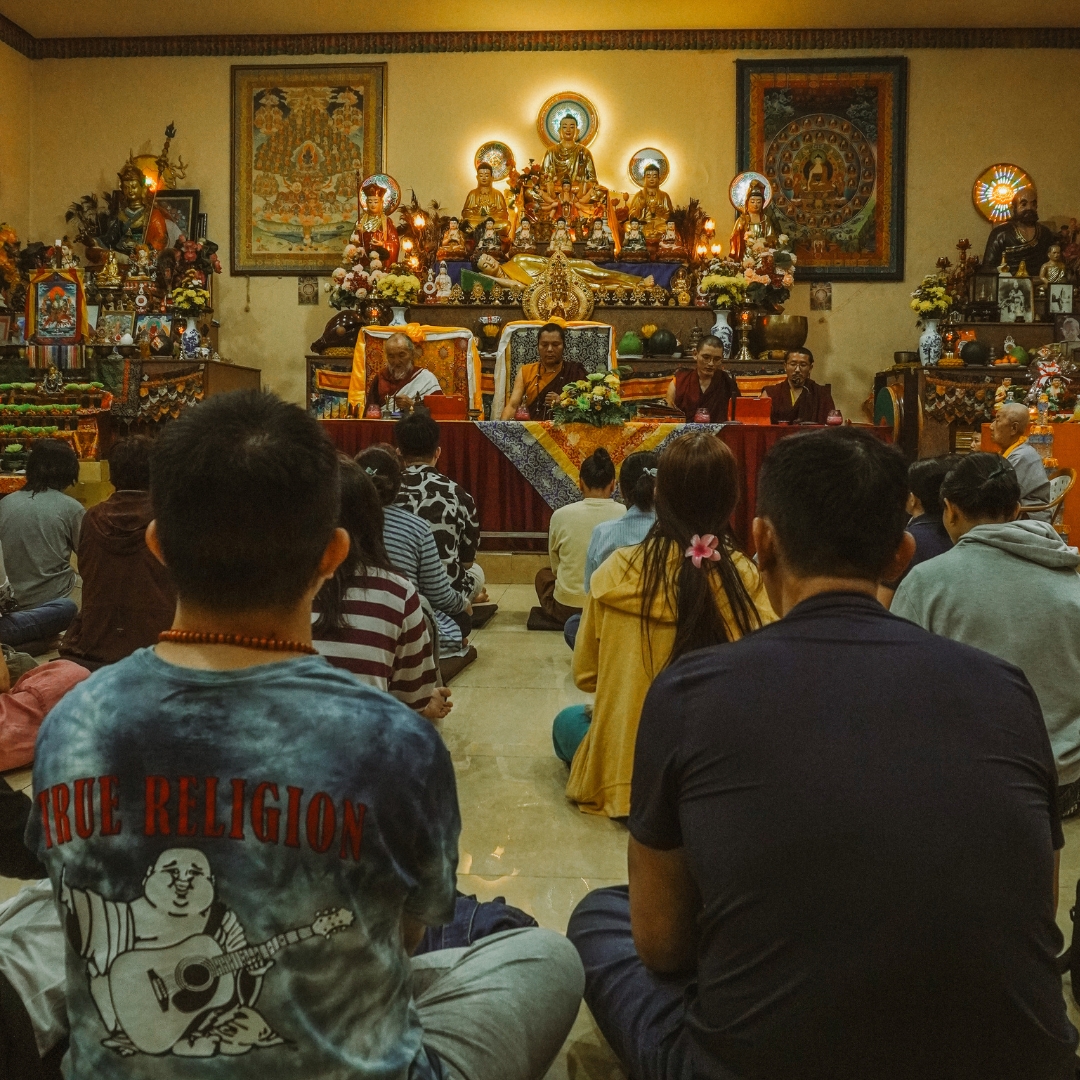
A Tibetan monk officiating an event in Ho Chi Minh City, Vietnam. Tibetan Buddhism is emerging in Vietnam as a popular form of new religiosity © 2025 Lam Khau
Dr. Stephen Christopher (Adjunct Assistant Professor at Appalachian State University) is excited to be co-Lead (along with Dr. Suzanne Newcombe, The Open University) on a major grant from the John Templeton Foundation entitled ‘New Religiosity and the Digital Study of Eudaimonia’ (project #63357). The $1.6 million project, which runs from 2025-27, will establish an infrastructure which will allow researchers to quantitatively explore how contemporary religious groups might promote or hinder wellbeing. Eudaimonia is a Greek work commonly translated as “happiness” and explored in positive psychology as having several dimensions, including having life purpose and meaning, experiencing fulfilment through developing personal potentialities, and actively pursuing excellence, expressiveness and forms of pro-sociality.
Using the infrastructure of the Database of Religious History (religiondatabase.org) at the University of British Columbia in Canada, the project will design a new data entry framework (a ‘poll’) to capture group-level descriptive variables that is able to capture beliefs and practices in contemporary religious movements. The ‘New Religiosity Poll’ will incorporate both narrative (qualitative) as well as closed questions which lend themselves to statistical analysis (quantitative). By establishing this data entry structure, we will be able to bring the study of contemporary religious movements into dialogue with the rapidly expanding field of digital humanities and data analytics.
The project will have a particular focus on variables which are associated with human flourishing and wellbeing. These questions are likely to relate to things like gratitude, dietary restrictions, relationship to nature, financial practices and volunteerism for causes within and beyond the structure of the religious movement itself.
We will also look at variables relating to how and to what extent religious group is accepted by mainstream society in a particular national context or by the greater mainstream tradition to which it claims to be associated. We will also include information on beliefs and practices that might have a negative effect on wellbeing, such as undue commitments on followers or tension with majority groups and mainstream norms.
After we establish the poll framework, we will enter 400 movements into the new database structure. Half of these entries will be organised by the partner organisation Inform (inform.ac), based in Theology and Religious Studies at King’s College London. And half will be commissioned by Dr. Christopher with a focus on engaging scholars and trained expert-insiders from South-, East- and Southeast Asia. He will develop a citizen science paradigm to complement academic expertise with the perspectives of religious followers themselves—who will be trained in data collection. Our selection criteria for these groups will capture five broad traditions (Neo-Pentecostal, Islamic, Japanese, Esoteric and Dharmic) which have a significant presence from the 1970s onwards and have engaged with rapidly changing media technologies and the increasingly global flows of information and people.
In the final phase of the project, we will produce articles exploring the relationships between variables. Our initial publications will identify statistically unlikely relationships between variables in an open-ended way (using a Bayesian model). Eventually, we hope this framework can be used to test to what extent existing theories about contemporary religion, often based on specific case studies, might relate to testing much larger, more comprehensive quantitative trends in new religiosity.
For more information, see the project website at newreligiosity.org. If you have expertise in a new religious group and would like to contribute a poll entry, please contact Dr. Christopher at johnsonsc8@appstate.edu.